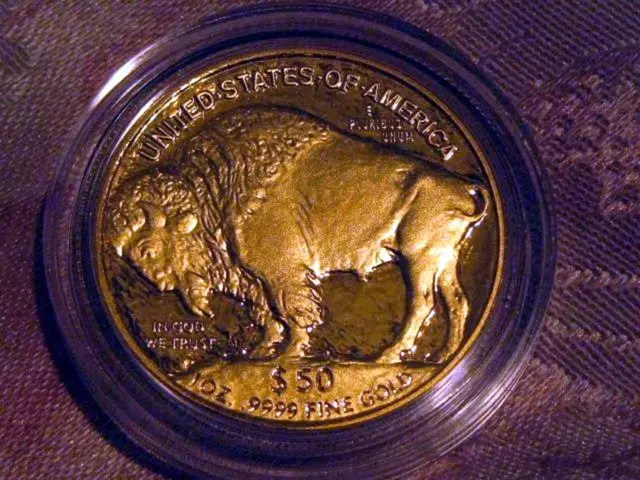Investors place wagers on electric airplanes emerging from Munich-based start-ups
Let's Talk Electric Flight with Vaeridion
Electric aviation is the new frontier, and startups like Munich-based Vaeridion are leading the charge, despite the financial hurdles in the air taxi industry. With a recent Series A funding round of 14 million euros, Vaeridion is set to make waves in the world of short-haul flights.
This funding round was headed by Berlin's climate tech investor World Fund. Other participants include VC firm Project A Ventures, co-founded by Uwe Horstmann, Munich's Vsquared Ventures, and angel investor and aviation engineer Andreas Kupke, who's also backed Munich-based rocket startup Isar Aerospace. Schwarz Holding and the Dutch economic development agency InnovationQuarter have also joined the bandwagon as new investors.
Vaeridion's operational base will be in Munich, with production slated to start there too. The company plans to produce around 100 units per year initially. If demand warrants it, additional plants for final assembly could be set up, particularly in high-demand regions like Scandinavia.
Industry analysts predict a surge in the regional aviation market in the coming years, thanks to governments, notably in Scandinavia, pushing for climate-friendly technology. By 2030, Sweden and Denmark will ban fossil fuels on domestic flights, while Norway will do so by 2040.
Vaeridion's flagship product is the "Microliner," an all-electric, nine-seater plane with a range of up to 500 kilometers. Test flights are scheduled for 2027, with commercial flights set to take off in 2030.
The startup's co-founder and CEO, Ivor van Dartel, believes the Microliner has several advantages. Firstly, it's a classic fixed-wing aircraft that can operate from existing airfields, unlike innovative concepts like eVTOLs. Secondly, the regulatory procedures for fixed-wing aircraft are well-established. Vaeridion was the first e-aerospace company to conclude a pre-application contract with the European Union Aviation Safety Agency, securing certification hurdles ahead.
Another significant advantage is pricing. The electric powertrain keeps operating costs low, making it economically viable for domestic flights with as few as nine passengers. This opens up the possibility of reactivating shorter connections that are currently unprofitable. In the future, electric flying could even compete with first-class rail travel.
Initial customers for the Microliner will be business travelers, but the service could expand to general travel later. Vaeridion is also exploring potential uses for patient transport in cooperation with ADAC subsidiary Aero-Dienst.
In addition to building and delivering aircraft, Vaeridion aims to generate revenue through maintenance services. The company will replace battery modules in the fleet upon reaching their service life, and these modules will be repurposed as second-life batteries in energy storage systems before recycling.
Vaeridion's battery cells come from the northern German startup Customcells, which itself has secured funding from Porsche and World Fund, among others. The startup has also received research funding totaling 1.4 million euros from Bavarian and German agencies. These funds will be used to fill key roles in the team and drive commercial growth.
With strategic partnerships and technological advancements, Vaeridion is gearing up to make electric aviation a reality for short-haul flights. Keep an eye on this Munich-based startup as it revolutionizes the world of regional flights.
[1] Vaeridion Raises €14M for Electric Aircraft Development; [2] Vaeridion Unveils All-Electric Microliner for Short-Haul Flights; [3] Electric Regional Aircraft Market Size, Share & Trends Analysis Report by Market Research Store; [4] Bosch Aviation Technology Teams Up with Vaeridion for Electric Aircraft Development; [5] Vaeridion Partners with Bosch to Accelerate Electric Aircraft Development.
- In the midst of electric aviation's rise, startups such as Munich-based Vaeridion, after securing a €14 million Series A funding led by World Fund, are poised to redefine short-haul flights and the air taxi industry.
- The Microliner, Vaeridion's flagship product - an all-electric, nine-seater plane with a range of up to 500 kilometers - witnesses test flights in 2027, followed by commercial flights in 2030, potentially challenging first-class rail travel.
- With production base in Munich and initial plans to produce around 100 units per year, Vaeridion looks ahead to expanding production, particularly in regions with high demand, like Scandinavia, where governments are pushing for climate-friendly technology.
- Collaborating with strategic partners like Bosch Aviation Technology, Vaeridion is set to achieve significant advancements in electric aircraft development and aims to make electric aviation a reality for short-haul flights.
- The Microliner's impact extends beyond transportation, as Vaeridion partners with ADAC subsidiary Aero-Dienst for potential patient transport services, and rotates battery modules from fleet aircraft for use as second-life batteries in energy storage systems before recycling.








